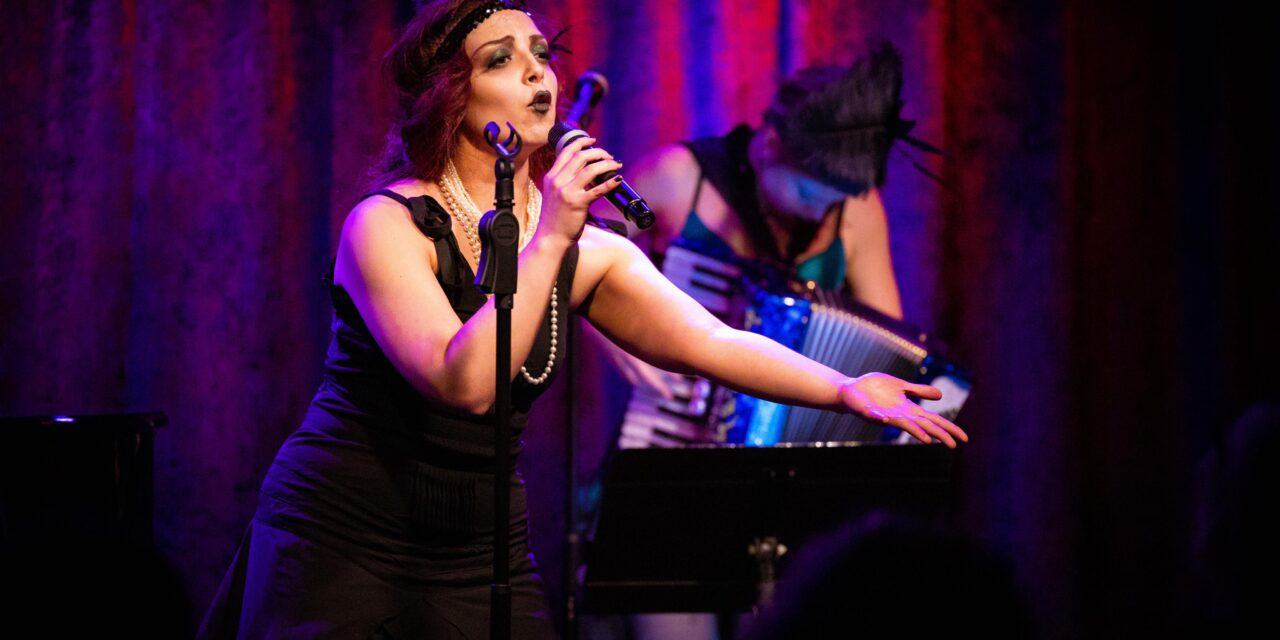By Andrew Poretz . . .
“When we study the past, we prevent history from repeating itself. What are the ghosts of Weimar past warning us of?” That’s the thesis presented in Ghosts of Weimar Past, the brainchild of Artemisia Lefay, a young mezzo-soprano singer, actress, and self-styled “cabaret resurrectionist.” The show had several previous iterations last year, first at Don’t Tell Mama and then The Triad Theater, both reviewed here by Marilyn Lester. The show returned with a new supporting cast, gorgeous new costumes designed by LeFay, and a fresh mix of songs of the Weimar era sung in English, German and French, along with several instrumentals.
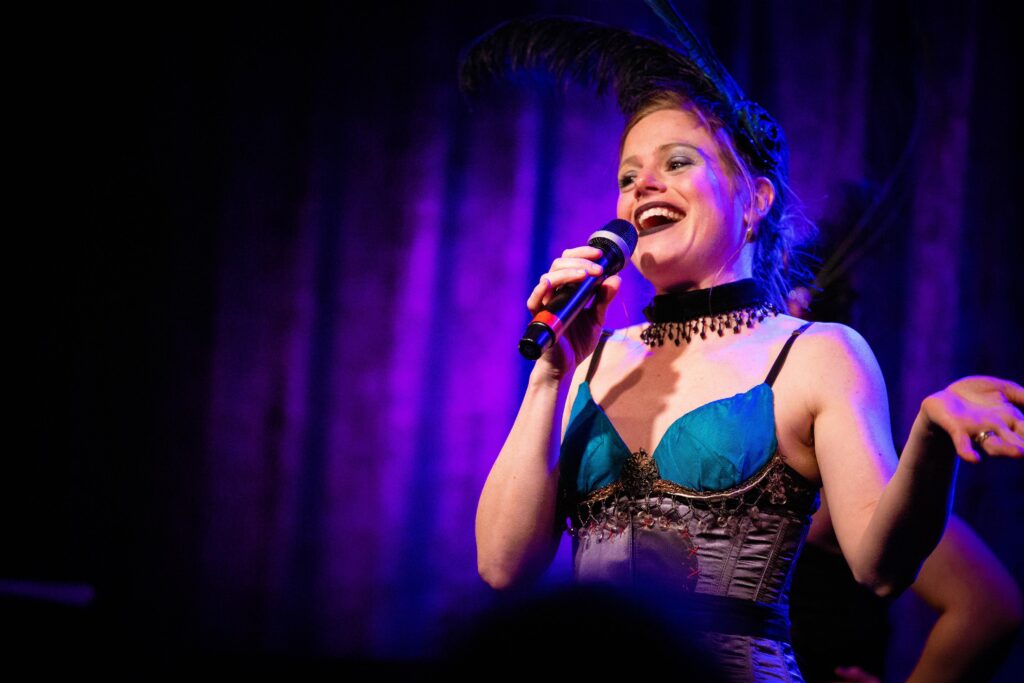
Ghosts of Weimar Past is described as “a program of musical time travel, in which we honor the spirit of cabaret and vaudeville from the birth to the death of Weimar Berlin.” To that end, the show succeeds on all counts. Each performer brings an entirely different skill set. All are excellent singers, musicians and storytellers, although LeFay (who is a pianist), as “Karmilla Vepp, Kabarett Chanteuse,” left the piano playing to Hannah Mount, referred to henceforth as Henrietta “Henri” Nussbaum.
A prelude to set the somber mood came in the form of the instrumental “Morphium” (Mischa Spoliansky, 1919). “Karmilla” invoked a Germanic accent, and described her musicians as an “orchestra of the depraved.” The pre-war German cabaret era of the 1920s and 1930s, immortalized in Kander and Ebb’s Cabaret on stage and screen, was one of freedom and decadence, politics and sex, often with homoerotic performances and stories. The show spent much of its time in the form of minor-key pieces that were well performed, but frankly depressing, particularly coming one after another.
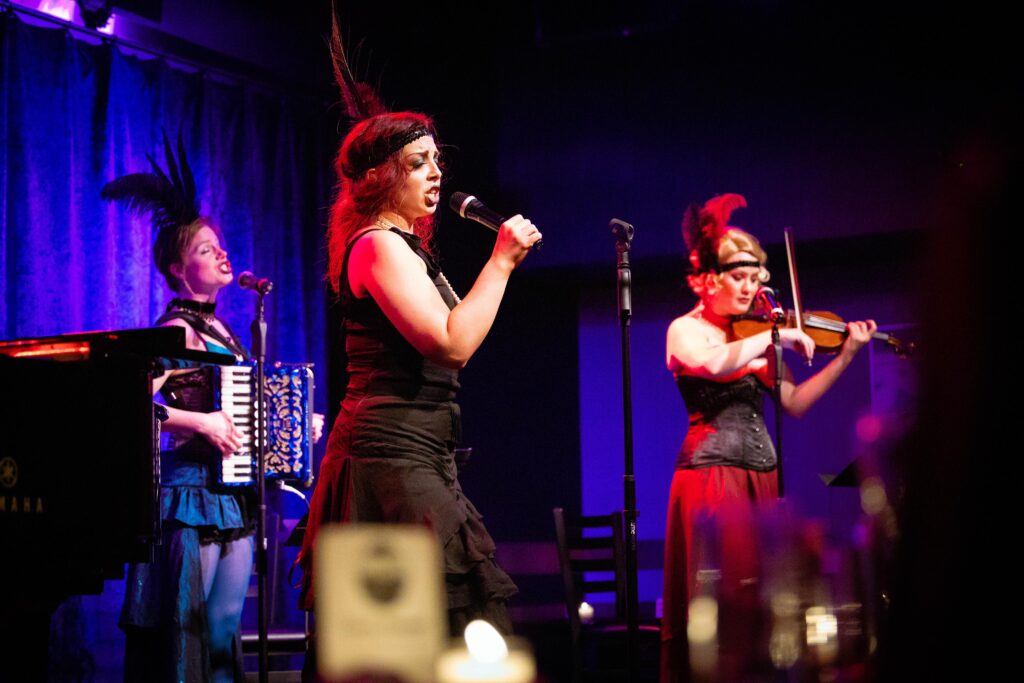

When a modern audience hears “Just a Gigolo” (Leonello Casucci, 1929), they likely think of the wild version by bandleader Louis Prima. The mannish “Henri,” looking like a jazz tomboy, left the piano to sing a sad, ballad version of the song that stripped away the happy patina of the Prima version and revealed the empty life of its protagonist.
The mood turned to anger with “Karmilla” singing “Pirate Jenny” (Kurt Weill, 1928). Throughout, the three musicians and “Karmilla,” in character, took turns telling stories to set up the songs. “CiCi Vagari” sung “Je Ne T’Aime Pas” (Kurt Weill, 1933) with passion. She has a spectacular singing voice.
“Johanna Baal” showed off her violin skills on Violin Sonata No. 2, “Obsession” (Eugene Ysaÿe, 1923), making the instrument sound more like a fiddle.
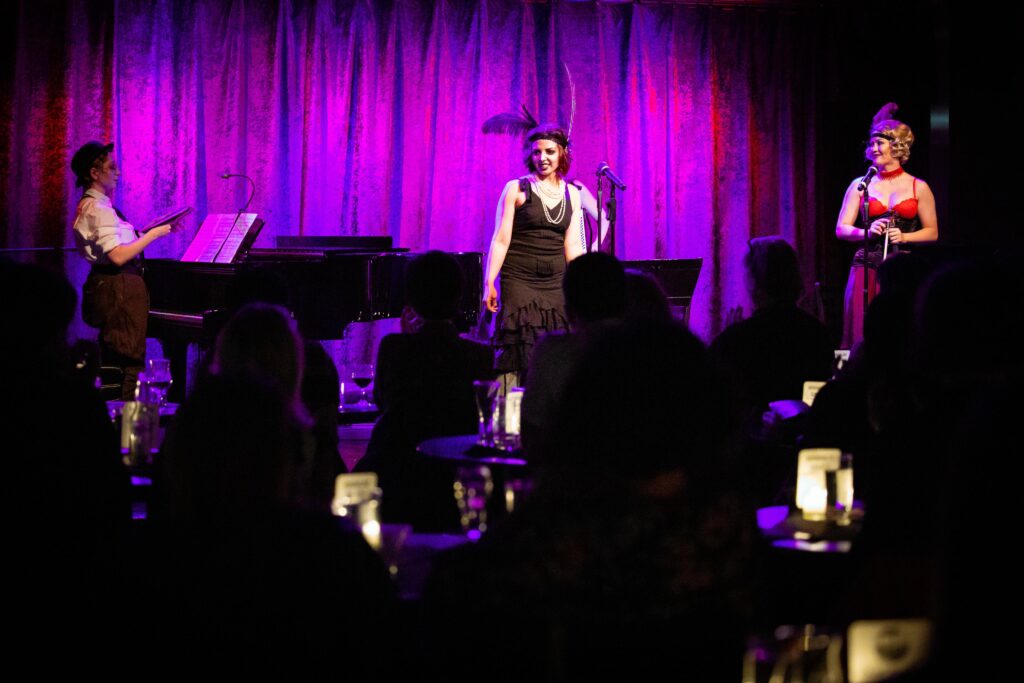

A particularly funny number was “Wenn Die Beste Freundin” (Mischa Spoliansky, 1930), performed by “Johanna” and “Karmilla.” This risqué song suggested the two women were not just best friends, but “best friends”—alluding to their bisexuality. “I’ve never known a partner to stay with me once they know what kind of person I am.”
A marvelous moment for “Karmilla” came with the provocative “I Know Not”/“Ich Weiß Nicht” (Friedrich Holländer, 1931).
Oh tell me, do tell me to whom i belong to
If I’m not the scoundrel to draw this one’s eye
If i do, and i do stay loyal
Then i’ll too be loyal to any passerby…
Oh tell me, do tell me to whom I belong to
the answer is no one but I
“Alles Schwindel” (Mischa Spoliansky, 1931) was a sensational number, sung in German by “Johanna.” It told of the despair of a man born in the wrong time and place. The entire cast ultimately sang together with great harmonies. For an encore, “Karmilla” performed a LeFay original, “Wasted Girl.” Her song held up well in a show filled with material by the likes of Kurt Weill.
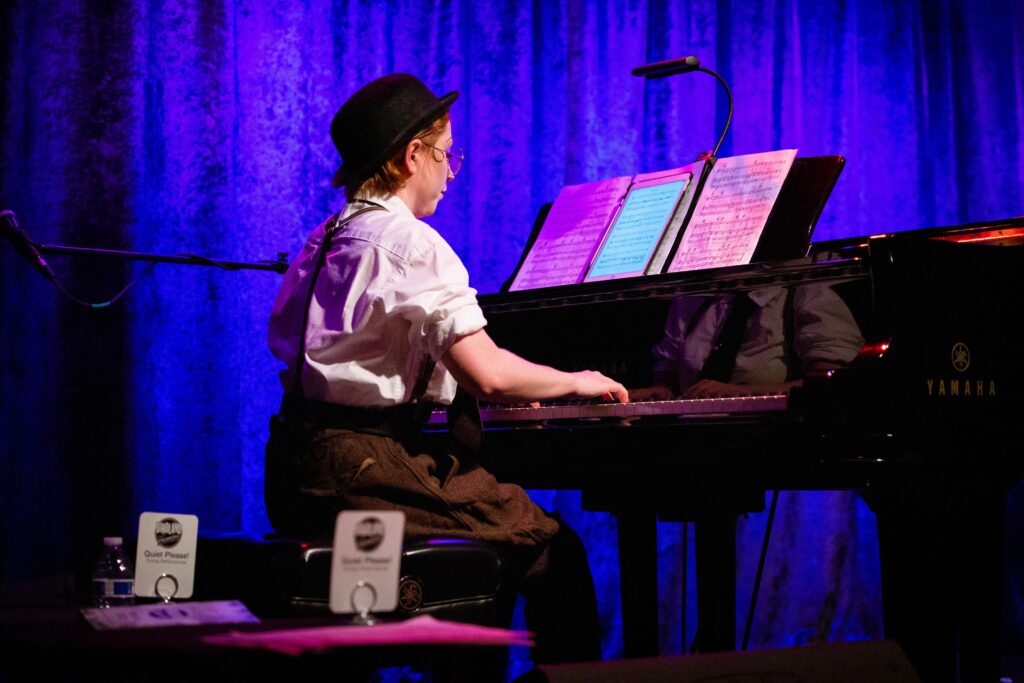

The show was a bit confusing to this reviewer. As Seinfeld famously said, “Who are these people?” Are they actually ghosts, or is that a metaphor? I spoke with LeFay for some clarity. “My intention was to evoke the feeling that whoever is experiencing the show is traveling back in time, viewing a ghost of a past show, or that the music actually conjures up the characters (hence why I chose ‘Morphium’ as the opening number). It can also be interpreted that the events of the show, and before and after, is the ‘reality’ and whatever the reality of the audience is the phantom.”
Most of the ingredients for a great show are there: A fine cast of talented, attractive performers; interesting songs with good arrangements; and fabulous costumes, which were created by Artemisia herself. With a few adjustments to the first half of the repertoire, this would be a show everyone will be talking about.
Cast:
Artemisia LeFay as Karmilla Vepp, Kabarett Chanteuse
Mary Spencer Knapp as CiCi Vagari, Accordionist
Hannah Mount as Henrietta “Henri” Nussbaum, Pianist
Tiffany Weiss as Johanna Baal, Violinist
Directed by Artemisia LeFay and Sam Bash
Makeup designer: Glitter Macabre
Ghosts of Weimar Past was performed March 21 at Birdland Theater (315 West 44th Street, between Eighth and Ninth Avenues. More on Artemisia Lefay can be found on her YouTube channel.
Photos: Matt Baker


